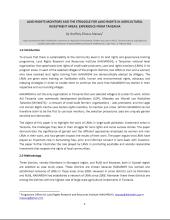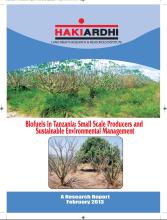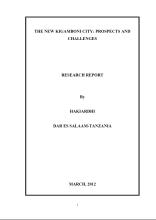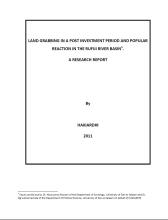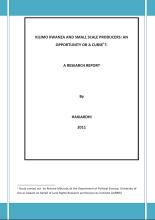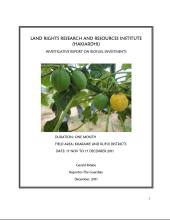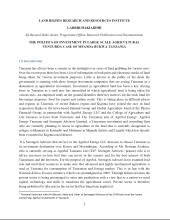Land Library
Bienvenido a la biblioteca de Land Portal. Explora nuestra amplia colección de recursos de acceso abierto (más de 74.000), que incluye informes, artículos de revistas científicas, trabajos de investigación, publicaciones revisadas por pares, documentos jurídicos, vídeos y mucho más.
/ library resources
Showing items 1 through 9 of 16.Cambodia has experienced rapid economic growth over the last decade. Cambodian gross domestic product (GDP) grew at an average annual rate of over eight percent between 2000 and 2010 and over seven percent since 2011.
This article focuses on two cases where companies have sought to develop more socially benign––and, they believe, more profitable and sustainable––plantation concessions in a context that is still marred by extensive land conflict.
To ensure that there is sustainability at the community level in its land rights and governance training programme, Land Rights Research and Resources Institute (HAKIARDHI), a Tanzanian national level organization that spearheads land rights of small-scale producers, uses land rights monitors (LR
The purpose of this study was to assess the bio-energy sector in Tanzania and to critically inquire the threats, benefits and opportunities to smallscale producers and sustainable environment management.
In early 2008 the government of Tanzania through the Ministry of Lands, Housing and Human Settlements Development –MLHHSD, initiated a project to develop a new city at Kigamboni area in Temeke district of Dar es Salaam region.
What has been the reaction of the rural producers and other land holders over these demands and actual land acquisitions? What does their reactions means in relation to ongoing land grabbing? While these questions are important this study was motivated by two major concerns.
This study sought to follow up the implementation of the Kilimo Kwanza initiative with the view to establish reliable facts on its significance to small-scale producers, mainly peasants and pastoralists.
Increasing investments in biofuel production follow a shift of energy demand,in developed nations from fossil fuel to bio energyto run machines. Consequently, there has is an accelerated influx of investors from the Europe, Asia and Americain quest for productive and fertile lands.
Tanzania has always been a country in the spotlight over cases of land grabbing for various uses. Over the recent past there has been a lot of information in both print and electronic media of land being taken for various investment purposes.


